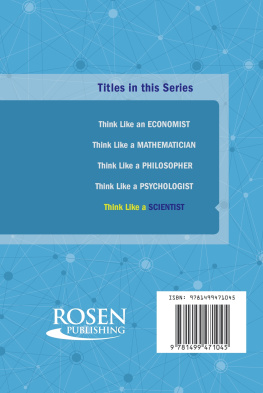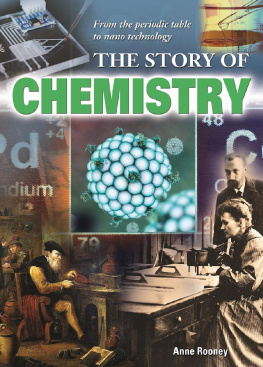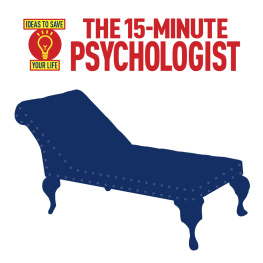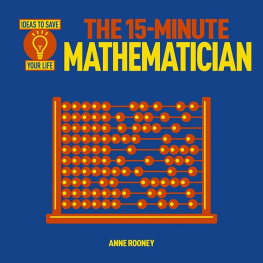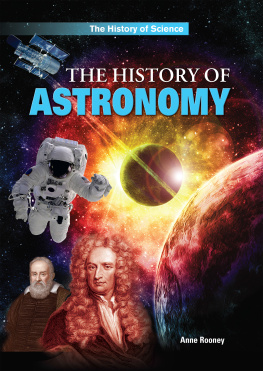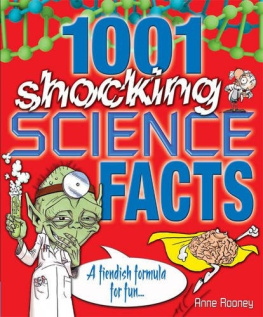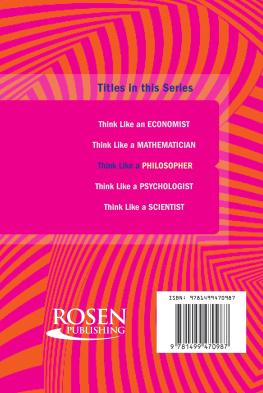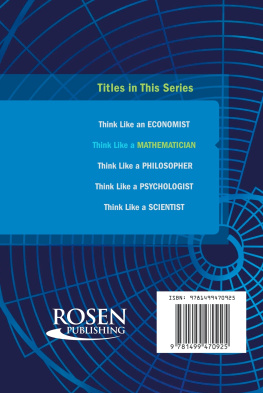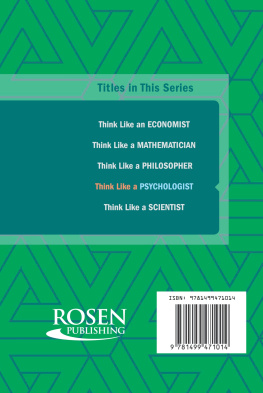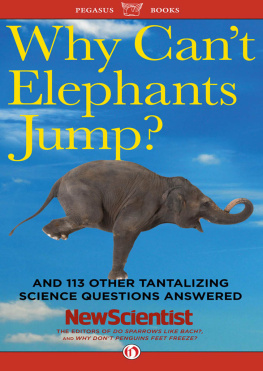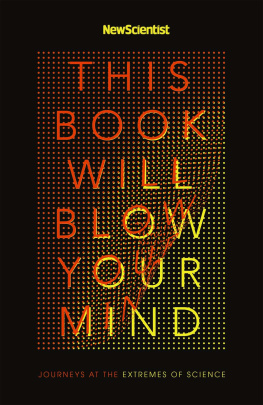
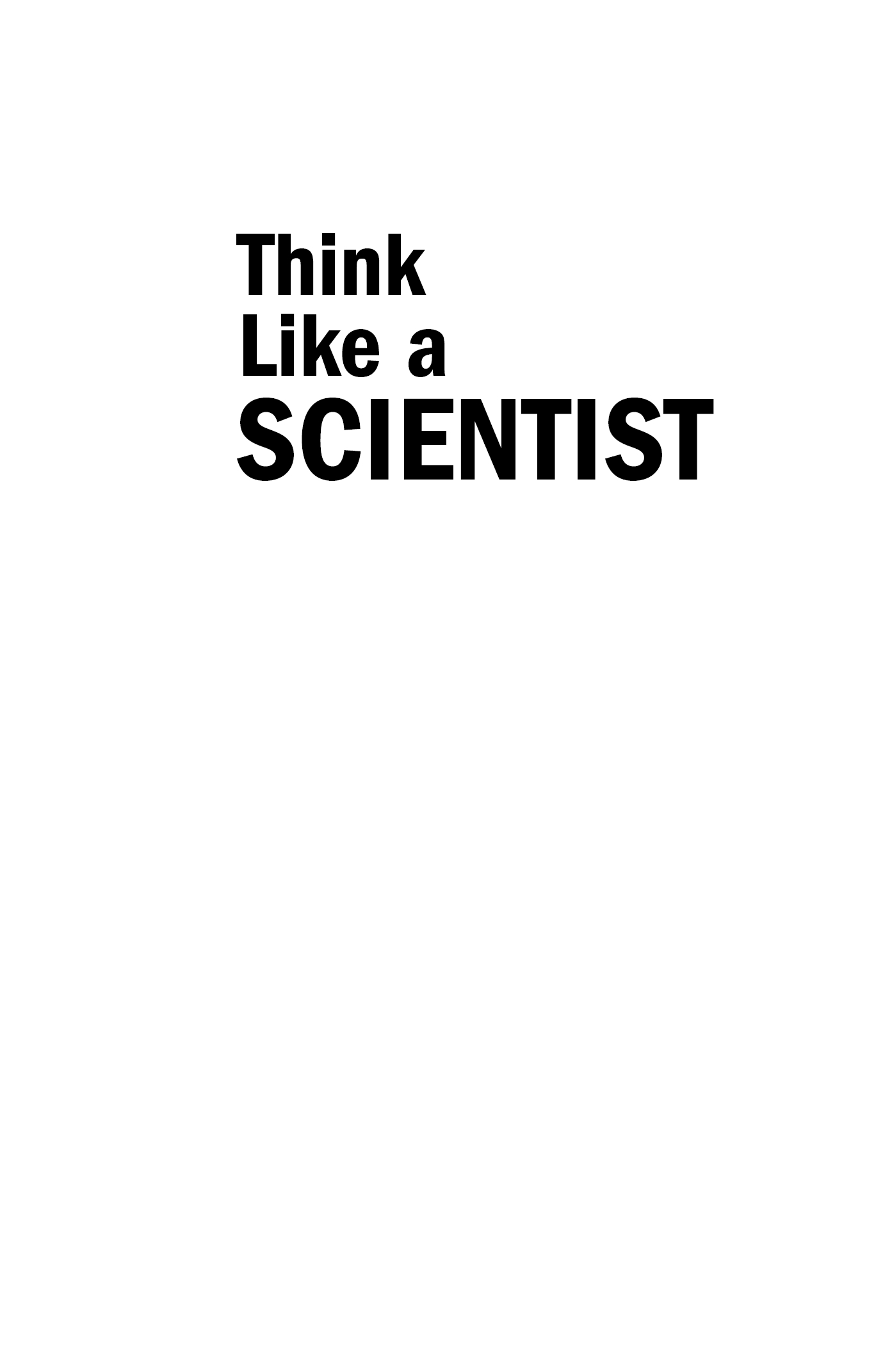
PICTURE CREDITS
Corbis: (Ikon Images)
Shutterstock:
Diagrams by David Woodroffe:
Published in 2022 by The Rosen Publishing Group, Inc.
29 East 21st Street, New York, NY 10010
Copyright Arcturus Holdings Limited, 2022
All rights reserved. No part of this book may be reproduced in any form without permission in writing from the publisher, except by a reviewer.
Cataloging-in-Publication Data
Names: Rooney, Anne.
Title: Think like a scientist / Anne Rooney.
Description: New York: Rosen YA, 2022. | Series: Think like a
Identifiers: ISBN 9781499471038 (pbk.) | ISBN 9781499471045 (library bound) | ISBN 9781499471052 (ebook)
Subjects: LCSH: Scientists--Juvenile literature.
Classification: LCC Q126.4.R66 2022 | DDC 509.22--dc23
Manufactured in the United States of America
CPSIA Compliance Information: Batch #CSRYA22.
For Further Information contact Rosen Publishing, New York, New York at 1-800-237-9932.
CONTENTS
INTRODUCTION
Why does science matter?
The word "science" comes from the Latin scientia, from scire, "to know." Science in its true sense is not restricted to any set of subjects but is all knowledge.
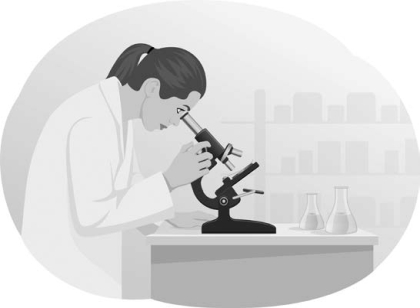
Knowing about science means knowing about the world around youand even the world within youand how it works. It is far more wide-ranging than the science we associate with the school curriculum.
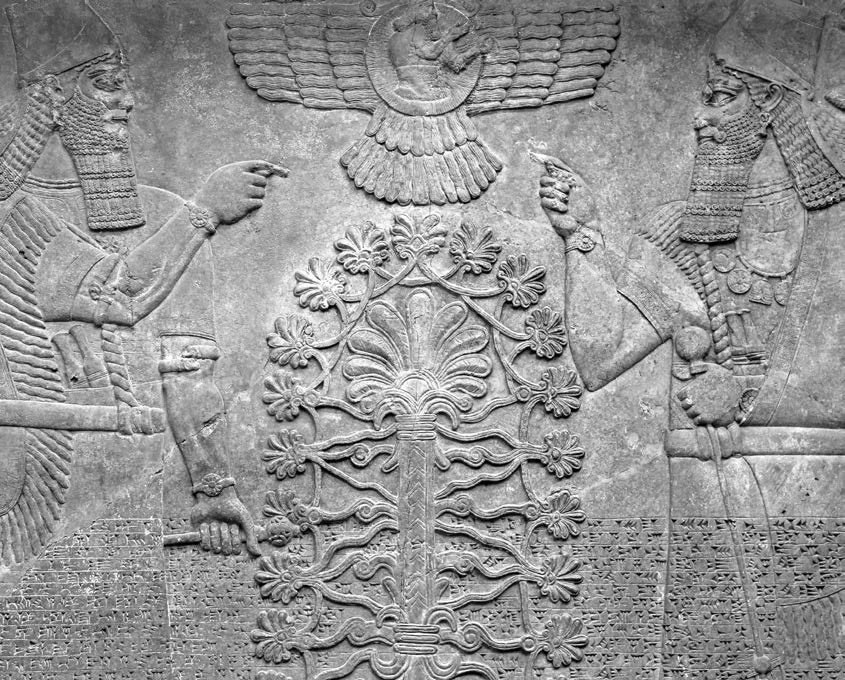
Ancient traditions: in this wall panel from 865860 BC, King Ashurnasirpal appears twice on either side of a sacred tree, possibly symbolizing life.
A long history
Science is an endeavor that began at least as long ago as the ancient Greeks, and in some forms in Mesopotamia 4,000 years ago. But it hasnt all been smooth sailing. In some parts of the world there have been long periods during which science was shunned or even forbidden. During these times people adopted different ideas, including the invocation of spiritual and mystical explanations for phenomena. Often the notion that only certain types of knowledge should be sought has stifled scientific inquiry.
Science is characterized by a particular way of organizing knowledge. This way developed in the 17th and 18th centuries, when people became interested in discovering the natural laws that govern the behavior of the physical universe.
A HYPOTHESIS MUST BE FALSIFIABLE
It may seem a strange way of looking at things, but whether or not a hypothesis is valid depends on whether it can be proved to be wrong. A hypothesis such as all dogs are more than 2 inches (5 cm) tall can be proved wrong by finding a smaller dog, but it cant be proved right. We would need to examine every dog that has ever lived or will ever live.
The scientific method
The scientific method that lies at the heart of modern science developed during the Enlightenment, a period of renewed interest and confidence in inquiry into the natural and physical world. The method is rooted in empiricism that is, what can be objectively observed and tested, rather than approached only through reason.
An idea a theory or hypothesisemerges from observations of the world and from thoughts about why it might be as it is. Perhaps someone observed that plants grow better at the sunny end of a field than the shady end, and so proposed that sunlight helps plants to grow. The hypothesis could then be tested by experiment or structured observations, and the results examined dispassionately and objectively to determine whether or not they support the hypothesis. Most of us learned this method in school science lessons with simple experiments. The hypothesis might have been that sugar dissolves more quickly in hot water than in cold water or that a truck will run faster down a steep slope than a shallow one. But in a school science lesson, the teacher and the textbook (and often the pupil) already have the answer. In real-world science, the answer is not generally known. Some hypotheses are very tentative and proven to be wrong. Others look fairly obvious but must still be tested before they can be treated as an accurate representation of fact.
Its perfectly possible to come to the wrong conclusion about the state of things just by looking at them. Before the invention of the microscope, around 1600, people reasonably assumed that the smallest living things were tiny bugs, such as fleas. We now know that most of the living things in the world are much smaller than this and can only be seen with the aid of a microscope, hence the term "microscopic." The way we look at the world and the deductions we make about it have been changed by the invention of the microscope.
Why know
about science?
Curiously, it became rather trendy in the late 20th century to claim to know nothing about science or mathematics. There was a popular belief that scientific knowledge was somehow at odds with being a cultured individual, when in fact it is central to it. In 1959, the English scientist and novelist C. P. Snow delivered a famous lecture in which he spoke of the distance and even animosity that existed between the "two cultures" of science and the arts, or humanities. This deep division in intellectual life was, he felt, holding up human progress. The divide remained and even increased in the following decades. It might now be narrowing, but its far from closed.
More people, though, now recognize that knowing about science is not a mark of an uncultured life but the very opposite. An informed appreciation of the world around us, the laws it follows, and how we can discover those laws puts us in the best position to make the most of our individual lives and the resources the planet affords us as a species. The loss of wild places was mourned poetically by 19th-century writers such as Wordsworth or Thoreau and demonstrated a need to find out how to renew and protect the environment. But this remorse for what humans have done to the world, invoked through the arts, can be harnessed in helpful action through the application of science and understanding.
"So the great edifice of modern physics goes up, and the majority of the cleverest people in the western world have about as much insight into it as their Neolithic ancestors would have had."
C. P. Snow
Be prepared
Understanding something of science enables us to make informed decisions and protects us from the deceptions practised by large corporations, the worst kinds of media, and national governments against an uninformed public. A little knowledge can protect you from scaremongering and scams as well as raise your engagement in and wonder at the world around you.
This book cant hope to cover all the aspects of science that will equip you to understand what lies behind every news story or topical issue. But it can lead you to think more carefully about the stories you encounter and about the natural world. It can encourage an interrogative, curious, or scientific approach and a respect for the disciplined organization of knowledge that underpins the modern world.
CHAPTER 1
Are humans the pinnacle of evolution?
We like to think were at the top of the evolutionary tree, but are we? And is there even a tree to climb to the top of?
Next page
